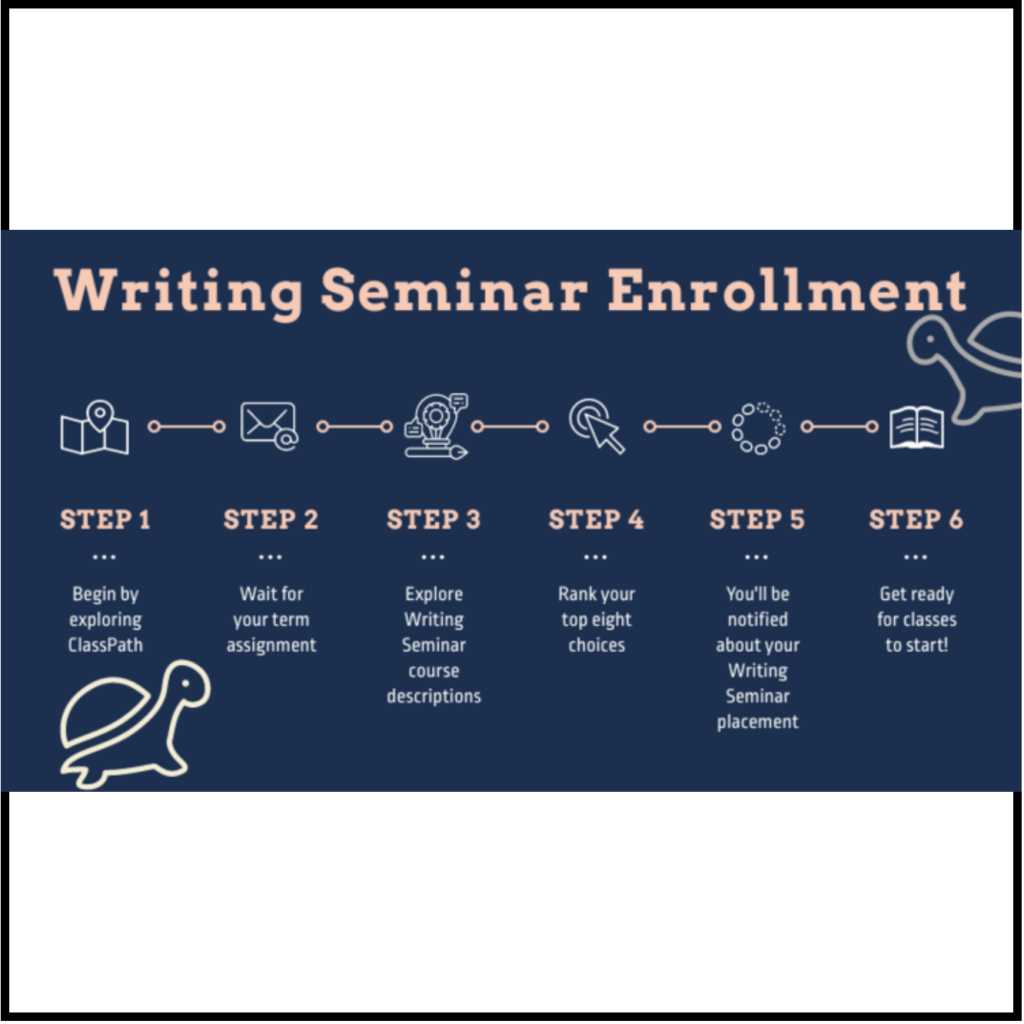Course selection is coming up! Picking classes that you are really excited about can be one of the best academic moments of the semester. Doing as much research on a course as possible can help to ensure I will enjoy a professor’s teaching style, which in my opinion is just as important as being interested in the subject matter. As those of us who have dabbled in the social sciences know, survey data can be a great method for evaluation, which is why when it comes to picking courses, I tend to weigh student ratings pretty heavily.

This strategy for course selection, however, is far from perfect. Now that I am more than halfway through my time at Princeton, I am all too familiar with hoping to read the reviews for a course only to discover that there aren’t any. The first time I had this experience was in the fall of my first year when I was trying to pick a writing seminar.
That’s right, first-years! For those of you who are taking your writing seminar this spring, you will soon discover (if you haven’t already) that there is no way to see the feedback provided on these courses by previous students. On top of the lack of access to course evaluations, there is no add/drop period for writing seminar; once you get your assignment, you will have to stick with it. So where should you start when trying to decide how to rank your top choices?
1. Read the course descriptions
A common misconception about writing seminars is that students intending to major in STEM subjects will have less opportunities to use the class as a chance to do research on topics in which they are actually interested. Quickly scanning the course descriptions on the Writing Program website, however, reveals the huge variety of subject matter covered across the set of available courses. Given that much of what you will learn will start with doing the readings you are assigned, an intrinsic desire to learn more about the topic can go a long way when it comes to staying on top of your work. The most accessible way to get a sense of the kinds of information covered in the assigned readings is to read the course descriptions carefully.
2. Ask around
Princeton has built in many wonderful ways of meeting other students, especially as a first year. Utilizing the connections you have made thus far is one of the best ways to supplement the lack of accessible course evaluations for writing seminars; the great part about the writing seminar requirement is that your PAA and RCA are just the tip of the iceberg when it comes to people you can ask about writing seminars. While it can be great to talk to other first years about their recent writing seminar experiences, I would encourage you to ask sophomores, juniors, and seniors about their opinions as well. This doesn’t have to be an extensive process, either—you can even ask strangers. As a first-year, I used a spare moment in a big survey course as a chance to ask the people around me about their writing seminars. Their recommendations helped me to decide on my first choice, after one girl praised the professor of a course whose description I had found compelling.
When asking around about writing seminars, be wary of people who say that they are “all the same.” I’m not sure where this idea originated, but I have heard it repeated on a few occasions. Given the huge range of student opinions on writing seminar, as well as the range of subjects covered, I am of the opinion that this claim couldn’t be further from the truth.
3. Consider class times
While this may not be the case for everyone, I knew when ranking my writing seminars that class time would make or break my ability to focus. Attendance in writing seminar is very important. If you know that you are someone who might sleep through an early morning class, it is probably not a good idea to rank an 8:30am class highly. Similarly, if you know you tend to crash post dinner, a 7:30pm class is not ideal. Being interested in the topic of your writing seminar is an important part of making it to class in a good mood, but if you are one of Princeton’s many sleep-deprived students, you should not overlook the importance of timing classes according to your energy levels.
Concluding thoughts
Just because writing seminar is a requirement does not mean that there are not plenty of opportunities to align it to your specific interests. By the time that you are planning your D3, you will have learned tools to carve out a niche for your own research. One of the great joys of the research process is feeling compelled to investigate a problem—in writing seminar, you will become familiar with this concept when you learn about “motive.” As with any course, there will be days where you find your writing seminar fascinating, and others where you could care less. Pay attention to the moments that spark your interest, invest time into your papers, and at the very least, I can promise that the final product of your research will be deeply satisfying, no matter what writing seminar you take.
— Kate Weseley-Jones, Humanities Correspondent

